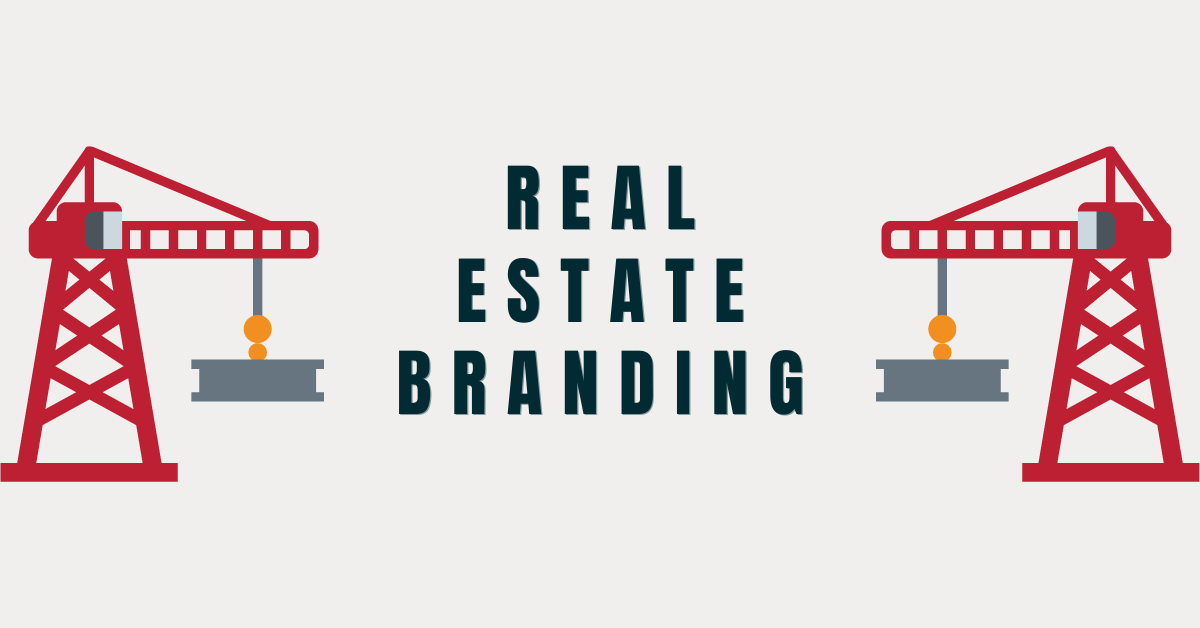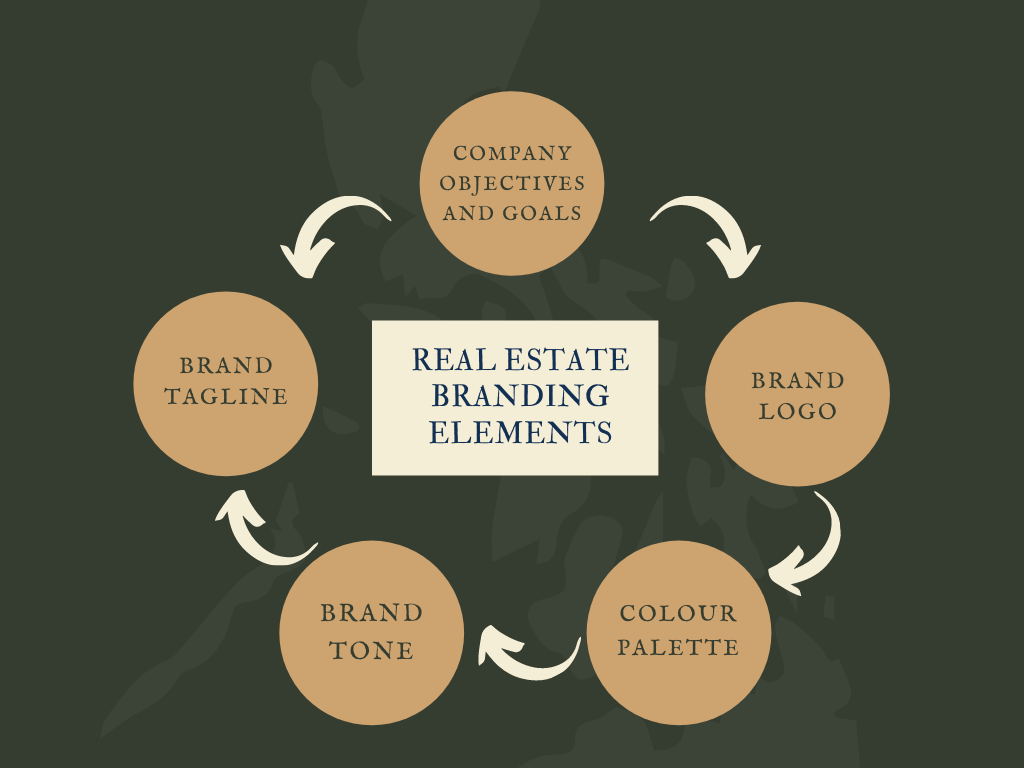
Meg Whitman, ex-CEO of Hewlett Packard Enterprise once said – “When people use your brand as a verb, it is remarkable.” Real estate branding is an essential requirement for establishing a successful real estate company. It encompasses the business objectives and elucidates how your services can make the home buying and selling process convenient.
Branding goes beyond fancy websites and catchy logos. It is an amalgamation of rich content, value proposition, a strong online presence, and excellent customer experience. This is why building a brand involves a lot of resources and time. In the paragraphs that follow, we will provide a comprehensive overview of what real estate branding is and how you can market your brand.
What is Real Estate Branding?
Buyers are cautious when it comes to investing in different types of real estate assets. This is because they not only have to pool their lifetime earnings on a particular project but also on their dream home or office. This is where branding helps. Real estate branding is a way of explaining how your visions match the services you offer, and how those services can cater to the client requirements.
Well-established names go beyond the conventional brand logo and colour palette theory. They focus on narrating the brand story and setting a tone that defines their goals in a unique and lucid way. This is what makes them different from others.
What is the Importance of Real Estate Branding?
A strong real estate brand delves deeper into the industry and implements techniques that can help the consumer visualize their dreams. This creates an expectation in the customer’s mind that the company offers exceptional products in comparison to other competitors. Here is how your business can benefit from an impeccable real estate branding strategy:
- Branding builds a strong online presence and identity.
- It helps in justifying premium prices which in turn leads to higher profits.
- It makes it easier for established brands to launch new services or products.
- It saves time and resources in the long run.
- Branding allows you to generate more leads by marketing your credentials.
Questions that you Need to Ask Yourself
Since there are many components associated with real estate brand building, crafting a strategy can be challenging. It not only requires exhaustive market research but also needs a strong hold over the domain you want to offer services in. We have collated a list of questions that you must ask yourself while creating a brand marketing plan.
- What are my business goals?
- What is my company’s vision and mission?
- How can I make the property sale and purchase process easier?
- Which services are missing from the market?
- What are my strengths and weaknesses as per the SWOT analysis?
- In which niche do I want to specialize?
- Where are my customers located?
- What is my unique selling position?
- Which social media platforms I should target?
What are the Elements of Real Estate Branding?
In the words of Paul Rand, a revered graphic designer – “Design is the silent ambassador of your brand.” Although a brand is much more than its design, the elements a brand chooses etches a company’s goals in the mind of clients. Hence, you need to exercise caution while developing different components of your brand. The image below highlights the key real estate branding elements which you need to lay emphasis on.

- A logo is your brand’s identity. It should encompass your vision and goals through an attractive image.
- The colour palette depends on the type of service you offer and your target audience. For instance, if you are targeting the younger generation then green, coral, or yellow palettes can work well. However, if you are offering consultancy or property management services, then blue or black gives a subtle look.
- The “About Us” section is a longer version of your brand slogan or tagline. It should specify the brand objectives, the services you offer, and the value proposition.
Real Estate Branding Process
Now that you have understood the nuances of real estate branding, here is a step-by-step guide that will help you reach your target audience with ease.
STEP 1: Understand Market Dynamics
The very first step in crafting a real estate branding strategy is to understand the market trends and requirements. It minimizes risks and helps in identifying the target audience, pricing strategies & investment areas. More importantly, it helps you identify the loopholes or missing services in the real estate industry. You can then come up with customer-centric and engaging solutions.
STEP 2: Define your USP
The next step in developing a real estate branding strategy is to highlight your niche and define the services you offer. This will help you in establishing yourself as a credible name in the chosen area. For instance, real estate agents focus on sale, purchase, and leasing properties while consultants specialize in asset valuation. You have to brand yourself as a specialist in the selected domain. Enlisted are some points that you need to highlight:
- Your area of specialization. For example, commercial property investment, sales and purchase, consultancy, valuation and development, etc.
- If you are into sale and purchase of real estate assets, then specify which properties you are experienced in. For example: office and co-working space, condominiums, single-family homes, malls, apartments, etc.
- The states, countries, or cities you work in.
STEP 3: Design Brand Elements
This includes, but is not restricted to, logo, brand story and tone, website design, slogan, and colour palette. Pick a brand name which is short and resonates with your goals. Lay emphasis in creating an impressive brand story. It should be able to effectively communicate how your company ads value to the lives of clients.
A captivating logo should be straightforward yet embody your core principles, making it instantly recognizable! Your website must encapsulate the essence of your brand while delivering effortless navigation and visual allurement. Choose colors that align with your company’s identity to foster emotional connection across various platforms online for a consistent look.
STEP 4: Identify Marketing & Advertising Mediums
The 4th and most important step in real estate branding is to select the online and offline mediums. While social media platforms are the most popular sources for creating brand awareness, you cannot ignore the efficacy of paid Google or Facebook Real Estate Ads. These ads help you target a specific audience at the right time, which will create brand awareness and generate more leads.
It is a myth that offline real estate marketing mediums are no longer fruitful. However, when you are in a consultancy or property management business, offline sources like visiting cards and flyers play a pivotal role in creating brand awareness. In fact, billboards are still considered an important component of residential or commercial real estate marketing.
STEP 5: Create Website and Social Media Profiles
With close to 700 million active internet users, having a fully-functional website has become more than important for real estate branding. Apart from the property and brand details, you also need to focus on website speed, performance, blog content, and testimonials.
There are more than 300 million active users on Facebook and close to 130 million users on Instagram in India. This proves why establishing a strong online presence is a necessity. Apart from posting property information, you can also share infographics, neighbourhood details, and humourous content. Here is an example of how Propacity has highlighted its services through an Instagram post.
STEP 6: Make your Website SEO Friendly
The primary objective of optimizing your website for search engines is to increase your visibility. And this is possible only if you implement the right SEO (search engine optimization) strategy. Creating brand awareness by targeting niche-specific keywords or phrases, improving domain authority (your website’s rank in comparison to your competitors), and improving the ROIs are some of the advantages of implementing SEO for real estate.
Also, remember to keep updating your site’s content often so that it stays informative for users. Use long-tail keywords along with localized material tailored to the specific needs of visitors. Enhance onsite elements like meta descriptions, alt text, headers, and internal links as well. Plus, try gaining backlinks from reputed sites which can increase your website’s credibility in the eyes of search engines.
STEP 7: Create Compelling Content
Although content forms an integral part of real estate branding strategy, the tone and format will vary based on the services you offer. For instance, if you run market research or a consultancy firm, market insights, case studies, and research reports will consume most of your content. However, if you own a real estate brokerage firm, then property listings, client testimonials, local activities, etc will be content which you can focus on.
A content type that works wonders for all real estate business is Video because it allows you to elucidate the specifics of your brand within minutes. Some other examples of real estate posts for social media include Instagram reels, infographics, and memes.
STEP 8: Refine and Restructure
Recently, Google transformed G Suite to Google Workspaces. Along with it, the company rolled out new logos for all its apps after 7 years. While some liked the new logos, it gave a hump to the others. A brand isn’t built in a day, but continuous improvements make a successful brand. However, the offline and digital real estate branding strategies have to be tweaked in such a way that it doesn’t overshadow your brand goals and objectives.
Hence, developing a real estate branding strategy requires a multifaceted approach. A careful mix of several marketing methods and persuasive content will help in connecting with clients positively. Implementing the above-listed points will create a unique positioning for your company and will make you stand out from the crowd.
STEP 9: Provide Excellent Customer Service
Implement training programs for agents to develop their skills in delivering outstanding customer service and maintaining the brand’s esteemed reputation. Foster a culture that values and promotes client testimonials and reviews, which will further establish the brand’s credibility and engender trust among customers. By consistently providing excellent customer service, you can build strong relationships, earn customer loyalty, and enhance the reputation of your business.
STEP 10: Stay Consistent and Evolve
In order to strengthen brand recognition and build trust, it is crucial to maintain consistency in branding across all points of contact. By consistently presenting a cohesive brand image, customers will become familiar with the brand and feel confident in their decision to engage with it. Additionally, being open to evolution and adaptation is essential as the real estate market is constantly evolving. By regularly revisiting and refining the brand strategy, you can ensure that you stay relevant and effective in a dynamic industry.

![Well, #GrowWithPropacity is here to educate you all about all things Real Estate.
Follow to stay updated in Real Estate!
[Real Estate, Construction, Real Estate Tips, Real Estate Growth, Real Estate Industry, Carpet Area, Super Area, Built Up Area, Home Buying Tips, Home Buyers, Property]](https://propacity.com/blogs/wp-content/plugins/instagram-feed/img/placeholder.png)
Leave a Reply